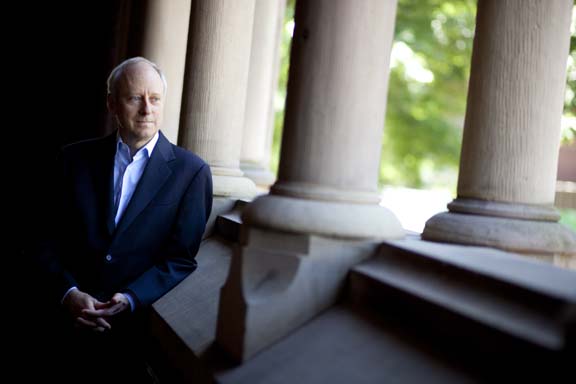Author and Harvard Professor Michael Sandel discusses “What Money Can’t Buy”

These are just a few examples of the ways in which markets and market values have infiltrated areas of our lives where different values once held sway. Is this trend good? Is it ethical? Should markets, which above all else value efficiency and maximizing utility, be limited to particular segments of society so that they do not overtake other human values?
Michael Sandel, a professor of government at Harvard University, explores these questions in his new book, What Money Can’t Buy: The Moral Limits of Markets (Farrar, Straus & Giroux 2012). His fantastically popular course, Justice, was a nationally televised series on PBS, and became the first Harvard course to be made available free online (http://www.justiceharvard.org/). The course has been translated into many languages and viewed by millions of people around the world.
Sandel will be discussing What Money Can’t Buy in Lexington in October at Temple Isaiah in a forum moderated by Lawrence S. Bacow, president emeritus of Tufts University. He recently spoke with Lexington Times Magazine.
Colonial Times Magazine: What will you be speaking about when you come to Lexington?
Michael Sandel: The central question of the book and of the lecture is, what should be the role of money and markets in our society? Over the past three decades, we’ve witnessed a quiet revolution. Markets and market thinking have been reaching into spheres of life previously governed by other values, from family life and personal relations to health, education, and civic life. Where do markets serve the public good, and where do they not belong? Where might they crowd out or undermine moral and civic values worth caring about? The lecture will include interactive components. I will try to engage the audience in a lively discussion of some of these questions, which, after all, involve big questions about the role of ethics in public life.
CTM: In your book, you talk about the “skyboxification” of American life. What is that?
MS: When I was a kid growing up in Minneapolis, I was a big Minnesota Twins fan. At the baseball stadium, the difference in the ticket prices between the best box seat and the cheapest seat in the bleachers was two-and-a-half dollars: three-fifty for a box seat, and a dollar to sit in the bleachers. The effect was that, when you went to a baseball game, you could find the CEO and the mailroom clerk sitting side-by-side, more or less. When it rained, everyone got wet. It was a democratizing experience, everyone rooting for the home team under roughly similar conditions. Over the past three decades, this has changed. Most stadiums now have skyboxes where the affluent and the privileged can isolate themselves from the common folk in the seats below. This is a metaphor, I think, to what’s happened in our society as a whole in recent decades. I call it the “skyboxification” of American life.
CTM: Why do you see that as a problem?
MS: As money and markets dominate more and more domains of life, we find that the affluent and people of modest means lead increasingly separate lives. There are fewer and fewer public places and occasions where people from different walks of life, from different social and economic backgrounds, encounter one another and share in-common experiences, and this is, I think, damaging to democracy, corrosive of the commonality on which democratic life depends. I think it’s connected to the growing tendency of money and markets to dominate, not only in the sphere of material goods, but in most every sphere of life.
CTM: Besides democratic values, what other values do you think are becoming displaced by money and markets?
MS: My book discusses many examples, but let me give just one more here. In many school districts around the country, they are experimenting with paying students a financial reward to get good grades, or even to read books. This is one of the topics that I plan to pose to the audience. Is the use of a cash incentive to try to motivate academic achievement a good idea, or is it objectionable? And if it is objectionable, why, exactly? This is an example of another kind of value—the love of learning for its own sake—that is arguably crowded out or eroded where monetary incentives come to substitute for intrinsic motivation.
CTM: Your course, Justice, is a runaway hit at Harvard and has been viewed online by millions. China Newsweek named you the most influential foreign figure of the year. To what do you attribute the popularity of Justice?
MS: I think that there’s a great hunger among students around the world and also among citizens generally to engage in serious discussion about big ethical questions in public, to reason together in public about questions such as justice, rights, the common good, and what it means to be a citizen. Too often, public discourse doesn’t really address big questions. I think this is a source of frustration for a great many citizens, and rightly so, not only in this country, but around the world. I think this is the reason for the astonishing response to the online Justice course. It is a reflection of this hunger for public discussion of big, sometimes controversial ethical questions that really matter to people.
This interview was conducted, edited, and condensed by Jeri Zeder.

